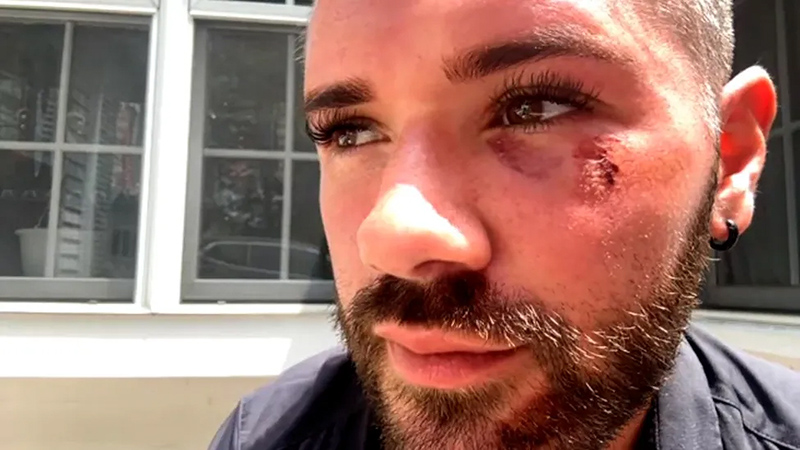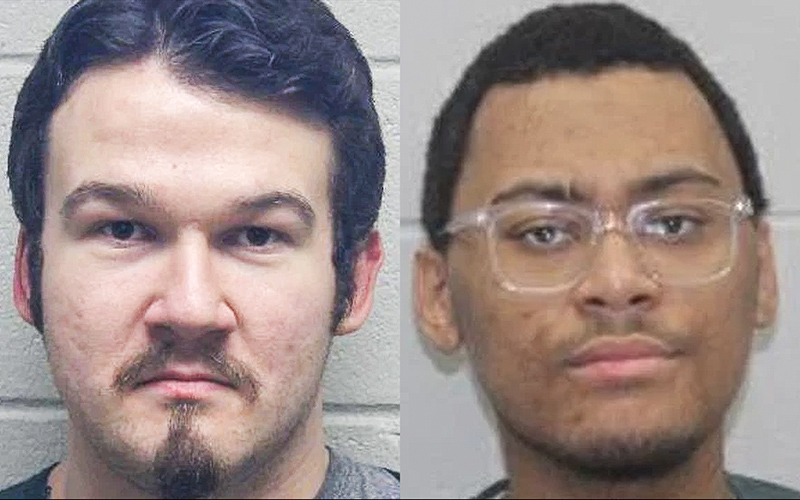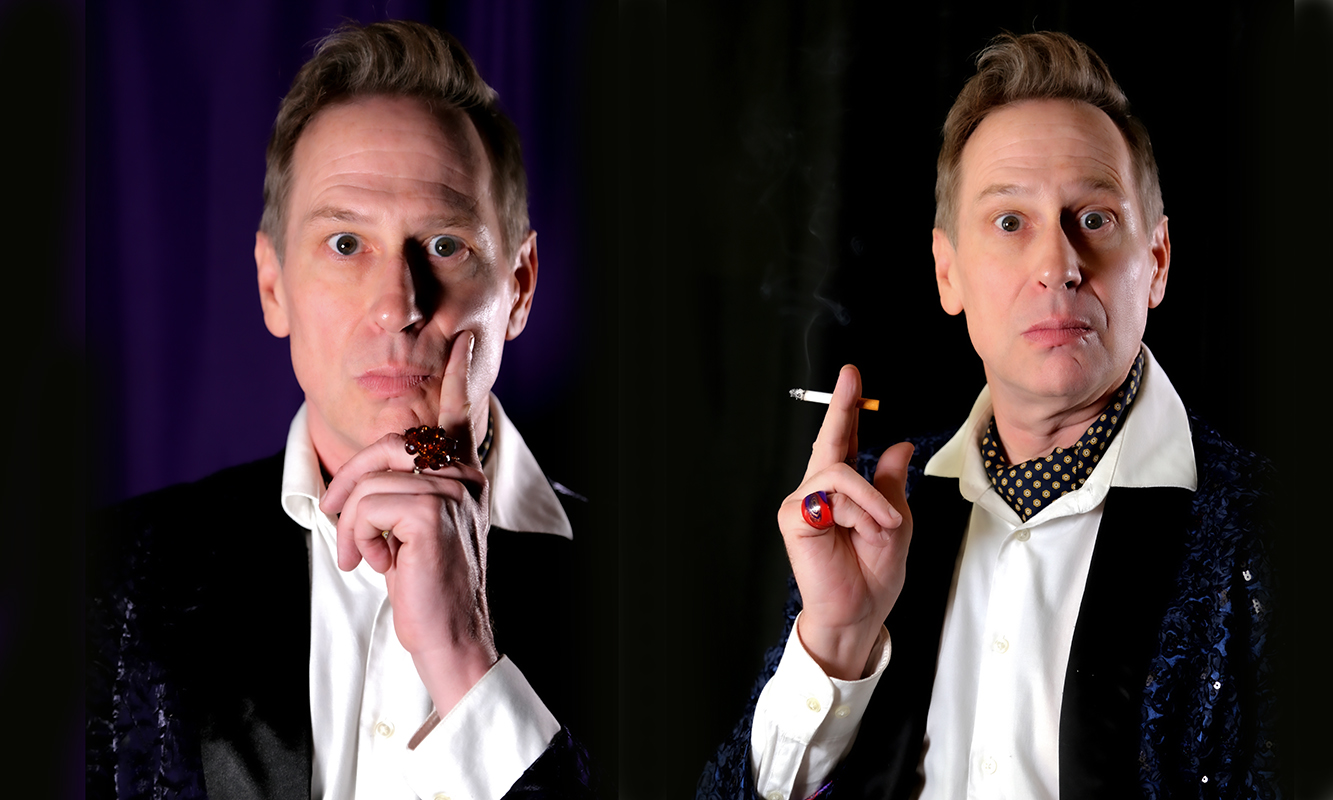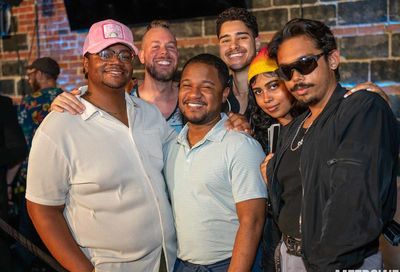LGBTQ groups slam passage of “Don’t Say Gay” bill
Florida bill to restrict classroom discussion of LGBTQ content in schools is expected to be signed into law by Gov. DeSantis.

LGBTQ activists, advocates, and allies denounced the passage of the so-called “Don’t Say Gay” bill, a “parental rights” measure that prohibits classroom discussions about LGBTQ-related content in Florida classrooms.
On Tuesday, the Florida Senate passed the bill, which allows parents to sue if they are not kept abreast of changes to support services that affect their children’s mental, emotional, or physical well-being in schools.
Provisions in the bill also prohibit teacher-led discussions of, or books relating to, LGBTQ issues through the third grade, and demand that any instruction on such issues in secondary grades be “age-appropriate.”
The bill now heads to Gov. Ron DeSantis (R), who has advocated for the bill to ensure parental rights are respected and that teachers are not seeking to impose cultural values on children that may be contrary to those prioritized by their parents, particularly among socially conservative families.
Critics of the measure say that it effectively gags teachers from opining on LGBTQ topics even in a neutral manner, lest they be accused of “promoting” homosexuality or transgender rights. They are skeptical that the explicit ban will only apply to primary grades, arguing that teachers and administrators will — in practice, regardless of what the bill says — preemptively ban all mention of LGBTQ-related content, even in history and science classes, to avoid incurring the wrath of overly litigious parents.
They also believe that the restrictions on curriculum content — and how schools choose to police that — will further alienate and stigmatize LGBTQ youth, leading to mental and emotional harm.
“The Florida state legislature is playing a dangerous political game with the health and safety of LGBTQ+ kids,” said Cathryn Oakley, the state legislative director and senior counsel at the Human Rights Campaign. “The existence of LGBTQ+ people across Florida is not up for debate. We are proud parents, students, and teachers, and LGBTQ+ people deserve to exist boldly, just like everyone else.”
“Discriminatory pieces of legislation like the ‘Don’t Say Gay or Trans’ bill don’t solve any critical issues in Florida. Instead, these bills shamefully attack and endanger LGBTQ+ students who are just trying to get a quality education, whom the state has an obligation to treat fairly and protect,” Oakley added, calling on DeSantis to veto the bill.
While supporters of the bill say it’s crucial to protect parental rights, LGBTQ advocates see several sinister motives behind the bill, including an effort to demonize the LGBTQ community for political gains heading into November’s midterm elections and to erase recognition of LGBTQ people altogether.
As evidence, they point to a tweet from DeSantis Press Secretary Christina Pushaw accusing bill opponents of being “groomers,” referring to the act of seducing youth into sexual activities — a statement that relies on decades-old attacks that LGBTQ individuals are seeking to “recruit” people into becoming gay or transgender. They also point to a since-scrapped amendment to the bill that would have forcibly outed LGBTQ youth to their parents.
Equality Florida, the Sunshine State’s largest LGBTQ advocacy group, left open the possibility of a future lawsuit if it infringes on the rights of LGBTQ students in a statement posted to Twitter.
“Let us be clear: should [the bill’s] vague language be interpreted in any way that causes harm to a single child, teacher, or family, we will lead legal action against the State of Florida to challenge this bigoted legislation,” the statement read. “We will not sit by and allow the governor’s office to call us pedophiles. We will not allow this bill to harm LGBTQ Floridians. We will not permit any school to enforce this in a way that endangers the safety of children. We stand ready to fight for Floridians in court and hold lawmakers who supported this bill accountable at the ballot box.”
Sarah Kate Ellis, the CEO and president of GLAAD, said in a statement that the bill makes Floridians “less free” by legalizing censorship and leaving LGBTQ youth or the children of LGBTQ families vulnerable to harassment and discrimination, with no guarantee school officials will intervene on their behalf.
“Banning discussion of LGBTQ people in school is an effort to silence and shame, to divide and disrespect, when all students should feel safe and learn about themselves and each other,” Ellis said in a statement. “To every LGBTQ child and every LGBTQ parent in Florida, you do belong and we know that history is on our side.
“Governor DeSantis is playing political football with LGBTQ Floridians. Other GOP leaders around the country who claim to be LGBTQ allies should be speaking against this ‘Don’t Say Gay’ bill, urging Gov. DeSantis to veto it, and fighting the tidal wave of anti-LGBTQ legislation around the country. Gov. DeSantis’ disdain and cruelty towards LGBTQ Floridians is noted and appalling.”
A 2021 national survey by The Trevor Project, the world’s top suicide prevention and crisis intervention organization geared towards LGBTQ youth, found that LGBTQ teens and young adults who had spaces where their sexual orientation or gender identity was affirmed — including in schools — reported lower rates of attempting suicide in the past year than those who did not have that “safe space.” The organization has previously found that LGBTQ teens and young adults who learned about LGBTQ issues or people in classes at school had 23% lower odds of attempting suicide in the past year.
“Every LGBTQ young person deserves to attend a school that provides an inclusive, affirmative environment — not one that aims to erase their existence,” Amit Paley, CEO & Executive Director of The Trevor Project, said in a statement. “We know that LGBTQ youth already face higher risk for bullying, depression, and suicide — and this bill will only add to the stigma that fuels these disparities.”
David Johns, the executive director of the National Black Justice Coalition, also denounced the bill as a “direct attack on LGBTQ+ kids” that would undermine their mental and emotional health and foster an environment of intolerance within schools — harms that would be amplified for Black LGBTQ-identifying youth, who already face barriers to feeling safe and supported at school.
Johns cited research by GLSEN and NBJC finding that more than half, or almost 52%, of Black LGBTQ students felt unsafe at school because of their sexual orientation, and 40% felt unsafe because of their gender expression.
“The reality is simple,” Johns said in a statement. “This will hurt children, increase suicide rates among the LGBTQ+ kids, and hurt non-LGBTQ+ children who would benefit from learning to celebrate diversity and build skills that enable them to thrive in the real world.
“No one gains from watching elected officials bully vulnerable children and their families in an attempt to deny that LGBTQ+ people exist and deserve love and respect….
“Attempting to prevent students from knowing and feeling comfortable using words, histories and experiences will not make those words, histories and experiences disappear. It will only make it easier for students to learn and perform the worst parts of ignorance and hate. This is the kind of legislation we would expect from Putin’s Russia, not from one of the largest and most diverse states in the country.
“Our students deserve better. Our country deserves better.”
Support Metro Weekly’s Journalism
These are challenging times for news organizations. And yet it’s crucial we stay active and provide vital resources and information to both our local readers and the world. So won’t you please take a moment and consider supporting Metro Weekly with a membership? For as little as $5 a month, you can help ensure Metro Weekly magazine and MetroWeekly.com remain free, viable resources as we provide the best, most diverse, culturally-resonant LGBTQ coverage in both the D.C. region and around the world. Memberships come with exclusive perks and discounts, your own personal digital delivery of each week’s magazine (and an archive), access to our Member's Lounge when it launches this fall, and exclusive members-only items like Metro Weekly Membership Mugs and Tote Bags! Check out all our membership levels here and please join us today!




























You must be logged in to post a comment.